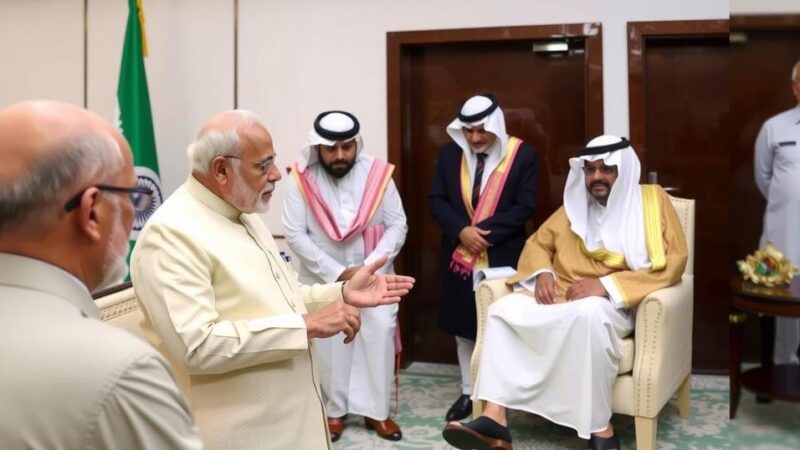Ethiopian President Abiy Ahmed and Somali President Hassan Sheikh Mohamud reached a vital agreement to resolve disputes over Ethiopia’s access to the Arabian Sea, mediated by Turkish President Recep Tayyip Erdoğan. The conflict arose after Ethiopia signed a port lease with Somaliland, prompting tensions with Somalia. Turkey’s long-standing ties with both nations have led it to assume a central role in promoting dialogue and stability, with further meetings scheduled for technical discussions on port logistics.
Ethiopian President Abiy Ahmed and Somali President Hassan Sheikh Mohamud have successfully negotiated a significant agreement aimed at resolving a year-long dispute regarding Ethiopia’s access to the Arabian Sea. This pivotal accord was unveiled in Ankara, following extensive discussions mediated by Turkish President Recep Tayyip Erdoğan, who is establishing himself as a crucial diplomatic figure in the Horn of Africa. The agreement signifies a potential de-escalation in tensions that had alarmed regional observers.
Historically, Ethiopia has faced developmental challenges as the most populous landlocked nation since Eritrea’s independence in 1993. In an effort to bypass these limitations, Ethiopia signed a lease agreement with the breakaway region of Somaliland in January 2023, which recognized Somaliland’s independence in exchange for port access. Somalia’s reaction included threats to expel Ethiopian troops stationed to combat Al-Shabab terrorism, raising concerns that the situation could deteriorate into a conflict reminiscent of the catastrophic Ogaden War of 1977-78 that had severe humanitarian implications.
Turkey’s involvement is largely attributed to its robust diplomatic and economic ties with both Ethiopia and Somalia. Ankara’s interest in maintaining stability stems from its military base in Somalia and its historical support for the Ethiopian government during the Tigray conflict, where it provided drone assistance. “The agreement will help make Turkey into an even more relevant power in the region, with Ankara pitching itself as a security partner for African countries,” states Eurasia Group expert Emre Peker. Furthermore, Turkish enterprises have emerged as significant investors in Ethiopia, with over $2 billion committed, second only to Chinese investments.
Looking forward, representatives from the involved parties are scheduled to reconvene in February for further discussions aimed at finalizing the logistics surrounding port access. This timely negotiation underscores not only the geopolitical intricacies at play but also Turkey’s aspiration to enhance its influence in Africa through diplomatic engagement and commercial opportunities.
The current conflict stems from Ethiopia’s longstanding struggle as a landlocked nation following Eritrea’s secession in 1993. The lack of direct access to the sea has hampered Ethiopia’s economic progress. The situation escalated following Ethiopia’s lease of a port from Somaliland, which sparked threats from Somalia regarding the status of Ethiopian troops within its borders, thus heightening regional tensions. Turkey, possessing strong military and economic ties to both nations, has positioned itself as a mediator to facilitate dialogue and promote stability in the region.
The agreement between Ethiopia and Somalia represents a critical step towards resolving ongoing tensions over port access, with Turkey playing a key mediating role. This involvement not only enhances Turkey’s diplomatic clout in Africa but also provides opportunities for increased commercial engagement for Turkish businesses within the region. Future discussions in February will be crucial to solidify the conditions of the port access arrangement and ensure lasting stability between the two nations. As a result, this agreement could reshape regional dynamics and foster cooperative economic growth.
Original Source: www.gzeromedia.com







